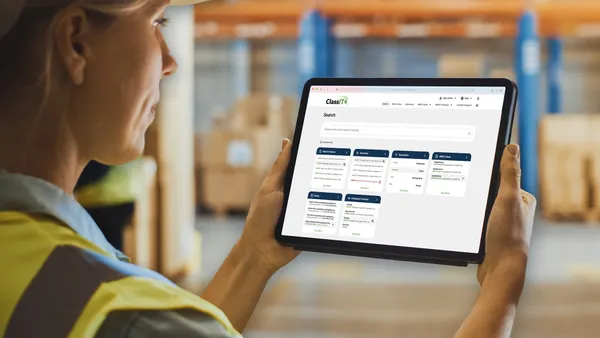Dive Brief:
- Online retail sales rose by 11% in 2016, resulting in $91.7 billion in revenue, versus $82.5 billion in 2015, Amber Road and Adobe Digital Insights reported last week.
- Despite this uptick, global vendors are plagued by a multitude of concerns. Security risks are at the forefront, including natural disasters, product malfunctions (think of Samsung), changing worldwide regulations, political uncertainty and international cargo thievery.
- Sellers are also concerned with ironing out reverse logistics issues, as online purchases face a return rate of 30%, versus a brick and mortar rate of only 10%. Brand reputation concerns affect 24% of sellers, while shipping and transport issues affect 36%.
Dive Insight:
The most common regulatory issues facing cross-border e-commerce transactions involve consumer product safety, customs, border protection and transportation. Global traffic managing systems, which power international sales for vendors, ideally function seamlessly, offering the ability to track everything from the choice of available products, to providing applicable trade content such as licensing and legal restrictions. However, current offerings are considered substandard.
Updating software capabilities will power not only more sales, but trigger greater effectiveness in tracking every aspect of potential conflict or upset. The list of necessary abilities for a truly effective global sales platform include the ability to provide accurate landed costs to ensure correct pricing for customer price quotes; proper product classification for international tariffs; export and import compliance documentation; duty paid notification in advance of checkout; restricted party screening and licensing notifications for buyers; special handling or attributes not covered by customs, compliance or regulatory agencies, Certificates of Origin and Certificates of Compliance to provide traceability.













